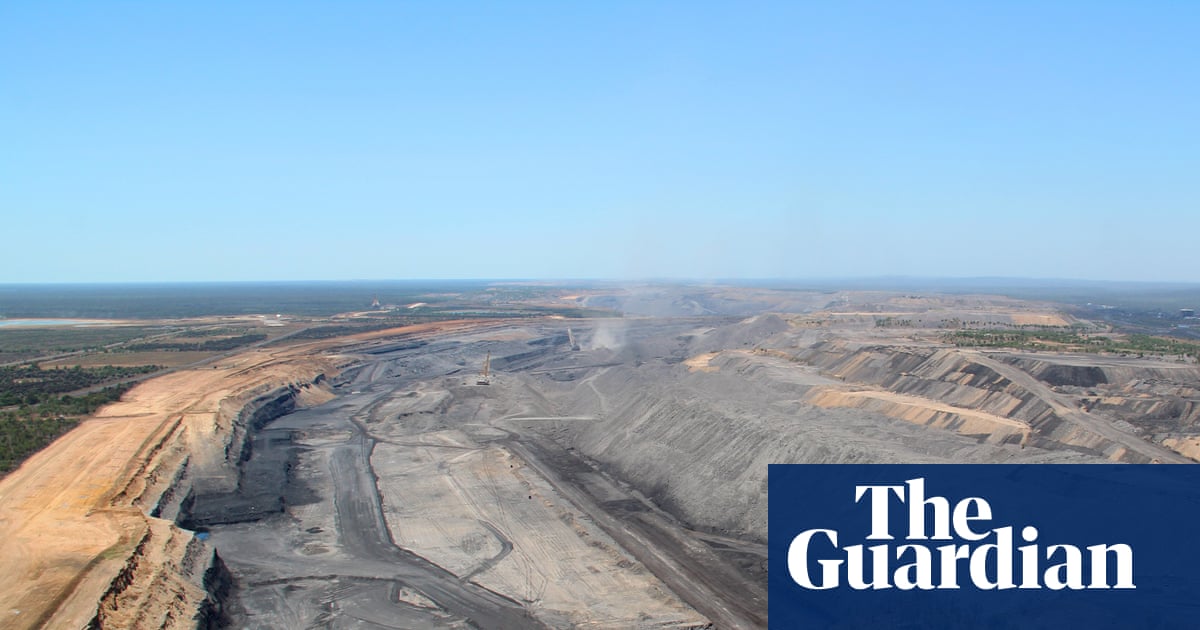Coalmines recently marked for closure in Queensland were previously shuttered due to being uneconomic, new analysis shows, undermining claims from the resources companies that they are being forced to close by the state’s royalty regime.
The “zombie mines” were often restarted in anticipation of windfall profits during coal price spikes, which occurred when Russia invaded Ukraine in early 2022.
As coal prices returned to normal levels, the projects have once again become unfeasible, according to the Institute for Energy Economics and Financial Analysis (Ieefa).
Sign up: AU Breaking News email
The findings come before a meeting between coal sector representatives, backed by BHP, and state government officials amid a campaign by miners to blame job losses on Queensland’s tiered royalty regime.
In quick succession, the BHP Mitsubishi Alliance (BMA), Anglo American and QCoal announced full or partial closures of several coalmines last week, with hundreds of anticipated job losses.
BHP, which has consistently campaigned against the royalty regime, blamed the scheme for its decision, while QCoal also cited it as a contributing factor.
Andrew Gorringe, energy financial analyst at Ieefa, said “zombie mines” rise and fall with coal prices.
“These mines share one thing in common; they are all previously mothballed mines that were shut on the grounds of being uneconomic,” he said.
“Sold on to other mining companies, they were restarted in the hope of windfall profits when the coal prices spiked.
“No surprise then that now that coal prices have returned to historical levels that they have become uneconomic again.”
Mothballed mines refer to temporary closures, whereby facilities are preserved in the expectation of a future reopening.
Ieefa analysis shows that all recently closed operations have previously shut during downturns, in a sign they are cyclical projects reliant on high prices to run.
These include a mix of coking coal operations, used in steel production, and thermal coal for electricity.
Royalty rage
In 2022, as coal prices were soaring, the then Labor state government introduced three new royalty tiers to capture a greater share of wealth generated during commodity price spikes. When prices are lower, the base rates remain the same.
They added an additional three tiers that operate when prices reach $175, $225 and $300 a tonne as part of a progressive royalty system.
The LNP government supports the current royalty scheme and has repeatedly said in recent months it is not for turning on the issue. The scheme agitates miners because it reduces, but does not eliminate, the excesses they can earn during boom times.
A BHP spokesperson referred Guardian Australia to past statements about its position on its Queensland coal business.
after newsletter promotion
In a statement to the ASX last month, BHP said it would consider pausing more operations if the royalty scheme and subdued coal prices persist.
“With no change to the ongoing negative impacts of extreme royalty rates, we will maintain our existing position of not investing in any further growth at BMA,” it said, referring to its Queensland joint venture.
Coalminers recently emerged from a windfall period, marked by huge price rises after Russia’s invasion of Ukraine. Coking coal prices soared above $US600 a tonne in 2022 but have since normalised at under $US200.
Production costs have been rising for ageing coalmines across Australia, given they are digging deeper into the earth in a process that takes more fuel and causes expensive wear and tear on equipment.
Labour costs have also risen significantly in recent years.
State government data shows that at the end of the last financial year there were more coalmines in Queensland than ever before, undermining claims the 2022 royalty changes would harm the sector.
The research director at the Australia Institute, Rod Campbell, said the recent closures were cyclical.
“Miners tried to shovel as much out the door as they could while times were good and now they’re having to scale back,” Campbell said.
“They’re using what is a natural market driven phenomenon to make some political hay.”
In an address on Tuesday, the Queensland premier, David Crisafulli, said that while the state was “open for business” that “should not be misconstrued as a chance for corporations to transfer their liabilities and the business downside to Queensland and to the Queensland government”.
“We’re not interested in fair-weather friends who come running for the dollars when things are good, then abandon Queensland in the name of shareholder profits when the going gets tough,” Crisafulli said.
– Andrew Messenger contributed reporting
